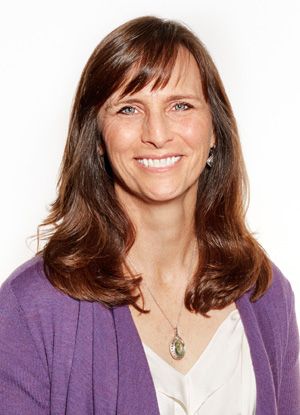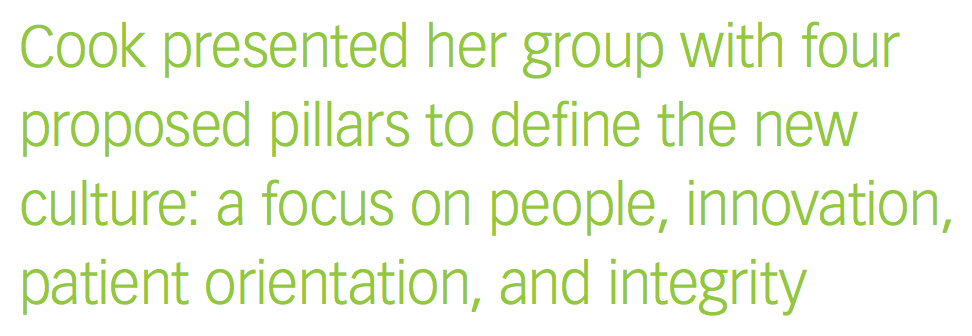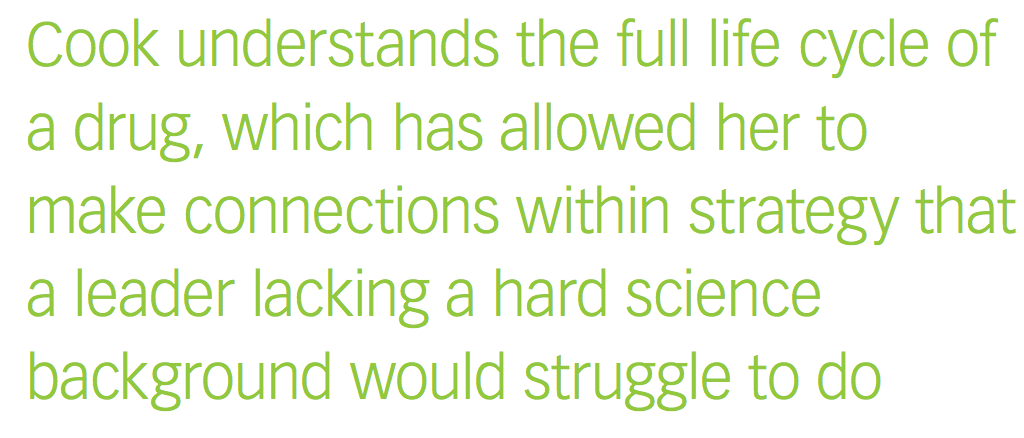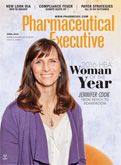HBA's Woman of the Year 2016
Pharmaceutical Executive
Pharm Exec profiles Roche’s Jennifer Cook, this year’s winner of the Healthcare Businesswomen’s Association Woman of the Year award, who has built a career in close parallel to the rise of biotech as a mainstream and integral driver of global health innovation.
Pharm Exec profiles Roche’s Jennifer Cook, this year’s winner of the Healthcare Businesswomen’s Association (HBA) Woman of the Year award, who has built a career in close parallel to the rise of biotech as a mainstream and integral driver of global health innovation.
In August 2013, as Europeans packed for the long summer holiday, Jennifer Cook arrived at Roche’s Basel, Switzerland, headquarters with the newly minted assignment as head of Pharma Region Europe. The 20-year company veteran faced a tsunami of knowledge. She needed to grasp Byzantine regulations on patient access and pricing regulations across 28 countries. She had to brainstorm strategies to address macro- and microeconomic concerns throughout the region.
Jennifer Cook

Better times were at hand: Euro zone statisticians had declared the beginning of the end of the continent’s six-year recession, and earlier that year, the Swiss biotech giant had beat analysts’ forecasts for first-quarter sales.
However, Roche faced challenges in Europe that its American big Pharma counterparts did not. The European Union (EU) biologics market presented stiff competition for the company. Genentech, acquired by Roche in 2009, stood to lose $10.7 billion in sales in the next few years due to patent expirations for Avastin (bevacizumab), Herceptin (trastuzumab), and Rituxan (rituximab).
As Cook worked to get up to speed, more than 5,700 Roche colleagues awaited her guidance. A lesser person might have balked at the opportunity to move her family halfway around the world and face a task just shy of the impossible: prepare for losses of exclusivity, deliver on those quarterly numbers, increase employee engagement, improve patient access, and innovate around brand messaging and communication strategies. With the headwind-facing determination that has defined her career, Cook accepted the challenge.
An early connection: Science and business
Born and raised in San Francisco, Cook grew up nurturing a love for math and science that was unusual in her humanities-focused family. Her father, an attorney, and her stay-at-home mother never hesitated to encourage her interests. Her older sister, Alison Cook-Sather, continued the family tradition and pursued a career in the liberal arts with a PhD in education at the University of Pennsylvania and now holds the academic title of Mary Katharine Woodworth Professor of Education at Bryn Mawr College.
While her sister pored over English texts, Cook enjoyed puzzling out math problems. She still remembers a particular word problem she tackled in a high school math class. If she knew the distance between a certain point and a lighthouse, as well as the light’s revolutions per minute, then she could calculate the speed the beam of light moved along the shoreline. The ability to creatively approach math calculations and design research experiments with an innovative flair fascinated Cook. “I realized there was much to discover, and every day is an opportunity to discover more,” she said.
Cook studied human biology as an undergraduate at Stanford University and fell in love with life in the lab. She stayed at Stanford to earn her master’s degree in biology. After graduation, Cook joined Genentech in 1987 as a senior research associate doing preclinical research on potential cardiovascular drugs. Moving from there in 1992, she worked four years as senior researcher and project manager at San Diego-based Prizm Pharmaceuticals. The biotech industry-still in its infant stage at the time-felt electric with possibilities, but offered limited career paths.
She recalls her grandfather broaching the topic of her career plans over lunch. “He asked me, ‘What are you going to do with your degrees in biology?’” She told him she wanted a career that combined business and science-a commonplace concept today that was rare then. Eschewing the advice of colleagues and advisors to stay the current path and earn a PhD, Cook applied for and was accepted into University of California-Berkeley’s MBA program. In 1997, in her second year of the program, she rejoined Genentech in market planning. Now Cook had a vocabulary and framework to deal with business situations in biotech. “I loved using analytics and market data to look at the commercial side of business,” she said.
With degree in hand, Cook moved quickly through Genentech’s leadership ranks. In 2002, she was promoted to senior director of market development, and then became vice president of product portfolio management in 2006. Three short years later, she was named senior vice president of global portfolio management for the merged Roche-Genentech organization. Cook was in charge of integrating the companies’ combined pipeline of about 80 drug molecules, worth $80 billion at the time.
In 2010, she transitioned back to Genentech to lead that organization’s immunology and ophthalmology business unit, which included about 500 employees. At the time, the division suffered from low morale and lagging sales.
Cook, a self-described introvert, approached the situation using a one-on-one communication strategy that has become her trademark. “I want to know what is on other people’s minds,” she said. Cook and her staff conducted a unit-wide survey to gather information on current and desired perceptions of culture. Employees initially resisted the call for a culture change and dismissed the

strategy as “Jennifer’s culture.”
She persisted and shifted the ownership of the new culture to the employees, as it was based on their own ideas. The results of the survey showed that team members wanted a culture where innovation and patient outcomes-two qualities firmly tied to Genentech’s earliest days of existence-were prized above all. So Cook presented the group with four proposed pillars to define the new culture: a focus on people, innovation, patient orientation, and integrity.
Within 11 months, the unit met its strategic goals by providing drug access to 300,000 patients and its financial goal of earning $3 billion in revenue within the therapeutic areas of rheumatology, respiratory, and ophthalmology. Cook credits her employees for all of the hard word. “I don’t have all of the answers, and it would be foolish of me to assume that I do,” she said.
Including all voices
Diversity has long been a catchphrase in the industry, but without inclusion, it cannot be as effective, Cook explained. “Inclusion is about creating an environment where people can bring their different ideas and backgrounds to the table and feel comfortable doing that,” she said. To promote inclusion in her current division, Cook makes sure that she has time in her hectic schedule to have conversations with employees and fellow leaders. While large audiences might motivate some people, Cook relishes the opportunity to connect on an individual-to-individual basis.
When she arrived at Roche’s Switzerland headquarters in 2013, Cook had to untangle the complexities of a difficult payer environment and increased competition. “What was clear was that we were not going to be the company we needed to be in a few years’ time,” Cook said. For ideas, Cook turned to her diverse workforce. Within the Europe division, women made up 64% of employees and men comprised 36%. Employees spoke different languages and came from different backgrounds. Cook had to work quickly, but also carefully consider country-specific information she received from her intensive communication with staff and managers.
“The decision was not to run a strategy project and say, ‘Here’s what we need to do,’” Cook said. “Instead, I asked each of the general managers in 28 countries to run diagnostics with their leadership team and to independently generate proposals for change.”
Cook explained that this meant giving up control over the process, but also handing ownership and accountability to employees, which was her goal all along. Over two years, the Europe leaders set their own plans in motion, and they were able to learn from each other and capture new ideas across the region. “Throughout the change, we performed very well,” Cook said.
Sales have grown robustly and employee engagement has risen during Cook’s leadership, according to company data. The number of women who are candidates for leadership roles within Roche increased 23% in the last two years due in part to her mentoring.
This last data point becomes more significant in light of sobering statistics on the dearth of women in biotech leadership. In August 2015, Nature Biotechnology published an editorial that criticized the continued lack of females in the industry’s boardrooms. “At 17.9%, the proportion of top executive positions occupied by women in big biotech is better than that in big Pharma, but only marginally,” the editors wrote, and argued that men in the boardroom could not be traced only to a “talent pool problem.”
The editorial concluded with a call to action to improve gender balance in leadership within pharma and biotech, which is something that Cook has done naturally, according to staff and managers who work with her.
Inflection point
When she mentors fellow colleagues, Cook, 50, likes to begin her professional story at the moment when she began to manage people. “This is an inflection point for a lot of people because you have to learn how to operate in a very different way,” Cook said. One year out of business school, Cook had the opportunity to receive feedback from employees on her leadership style. She learned that others perceived her as aloof and hard to approach. “That really surprised me because I was actually shy,” she said.
Going forward, Cook took time to explain herself more to fellow executives and colleagues. “I learned I needed to be explicit in what I was thinking,” she said. “Individuals like to follow leaders they know and trust and understand, a person who comes from a place of authenticity, who is not acting,” Cook said.
Carolyn Medley, Roche’s head of human resources for region Europe, said that Cook has brought a very calm, thoughtful style to the company’s leadership. “Whether she has known you for five minutes or five years, you feel that she cares deeply about your ideas,” said Medley, who has known Cook for three years. Medley has helped Cook find new employees to fill positions and aid in the leadership development of current employees. Medley said she has watched Cook craft communication strategies for town hall meetings or presentations that reach everyone across all levels, from entry-level employees to Daniel O’Day, Roche’s chief operating officer, to whom Cook is a direct report.
Cook also has a way of rephrasing goals to bring new perspective and energy, Medley said. During one town hall meeting that addressed the challenges of finding new patients, Cook zeroed in on a statistic. Four out of every 10 patients eligible for Roche medicines in the region had ready access. Cook

told her audience this meantthat six patients who needed their drugs were not getting them.
“That’s language people understand!” Medley said, adding, “She is able to get people to visualize what the marketplace looks like in a clear way.”
Cook also understands the full life cycle of a drug, and this has allowed her to make connections within strategy that a leader lacking a hard science background would struggle to do, Medley said. Perhaps where Cook has helped fellow colleagues most is in her ability to look at every problem with a slightly new perspective. “If you come to her and say, ‘I’ve thought of A, B, and C,’ she will always have a D, which is something else to consider,” Medley said.
Advice for women
For her part, Cook has greatly appreciated mentors who have nudged her along the way in her career. She gave special credit to Ian Clark, CEO of Genentech. “He saw an ability and potential in me that I hadn’t recognized in myself,” Cook said. “And he challenged me in different directions I never would have thought to go.” In a special video created by Roche for Cook’s HBA Woman of the Year award, Clark said that Genentech is packed with women who have benefited from Cook’s mentoring and leadership.
When asked what motivates her, Cook replied without hesitation: patient stories. At a sales meeting several years ago, Genentech employees who had benefited from the company’s medicines were invited to share their journeys to better health. A mother who suffered from allergic asthma stood on stage and explained how Xolair (omalizumab) had changed her life and allowed her to care for her daughter in ways that were impossible before. “There wasn’t a dry eye in the place,” Cook said.
Sales matter, of course, Cook said, when assessing the Euro region’s metrics. But patient access matters more to her, and it guides her idea of what she counts as success. All employees need to set their own standards for success, Cook said. “We get a lot of advice on what ‘good’ looks like, but you want to be building your own sense of excitement and capability,” she said.
As for advice for women specifically, Cook said: “Embrace the self-confidence you have earned.”
Cook also pointed out that she did not take on positions at any cost, which is something she encourages fellow women to think about when considering career moves.
As she and her husband, Mike, raised their two boys, Cook looked for career opportunities that allowed her to be at home more often and to travel less. Mike also began his career at Genentech, and worked as a biophysicist for 20 years, researching protein crystallography in drug development.
“He decided he wanted to be a stay-at-home dad, and that enabled our move to Europe,” Cook said. Her sons, Jackson, 13, and Sam, 12, have been thrilled at travel opportunities in Europe. They have already visited more than a dozen countries and are learning to speak German, Cook said. She joked that in contrast to her own childhood, her sons have grown up with microscopes in the house.
Cook has also made sure that her sons are aware of the importance of health, though she said she was unsure how much they absorbed until a poignant moment several years ago. Cook recalls that she and her sons were running errands in the city. The economic recession in the US had hit one of its lowest points. Cook explained to her sons that the shuttered storefronts they witnessed meant that some people had lost their jobs during the downturn. She was especially grateful to still have hers. Her son said, “It’s important that you keep working.” Cook replied affirmatively, and talked about the necessity of paying bills and so on.
“No,” her son said. “It’s important that you keep working because you help people get well.” Cook realized that her young son had internalized the importance of her job and understood patients, not profit, mattered most to her.
Every moment matters
When asked if she relies on a particular credo to carry her through professional and personal challenges, Cook shared her motto: “Every moment matters.” For the patients she and colleagues serve, Cook said, there’s a sense of urgency and opportunity. In such a large organization, it is helpful to remember that every minute can be used to help an individual who is very real-not an obscure endpoint.
“Sometimes I explain how there are almost 6,000 of us in our region and if we could each do just 5% more each day-imagine what we could generate. It would be incredible,” Cook said.
Over the course of her career, many scientific advancements-too many to name-have transformed the industry. Top among them, in her opinion, is the sequencing of the human genome. Parallel to these gains has been what appears to be a decline in public opinion about the biotech industry as a whole.
“When I started in the 1980s, biotech was viewed as very positive,” Cook said. “Whenever we had a new medicine, it was viewed in a generally favorable light.”
Now it doesn’t feel that way, Cook said. “My overwhelming experience has been that we are here for patients. My hope and sense is that it’s incredibly important for everyone in healthcare to get back on a positive path.”
Kathleen Raven is a freelance health writer. She can be reached at kathraven@gmail.com and on Twitter @inkkr

Reshema Kemps-Polanco: Taking Risks for Greater Reward
May 14th 2025Reshema Kemps-Polanco, executive VP and chief commercial officer, Novartis US, and the 2025 Healthcare Businesswomen’s Association Woman of the Year, uses the lessons she learned from her family to bring out the best in her teams.